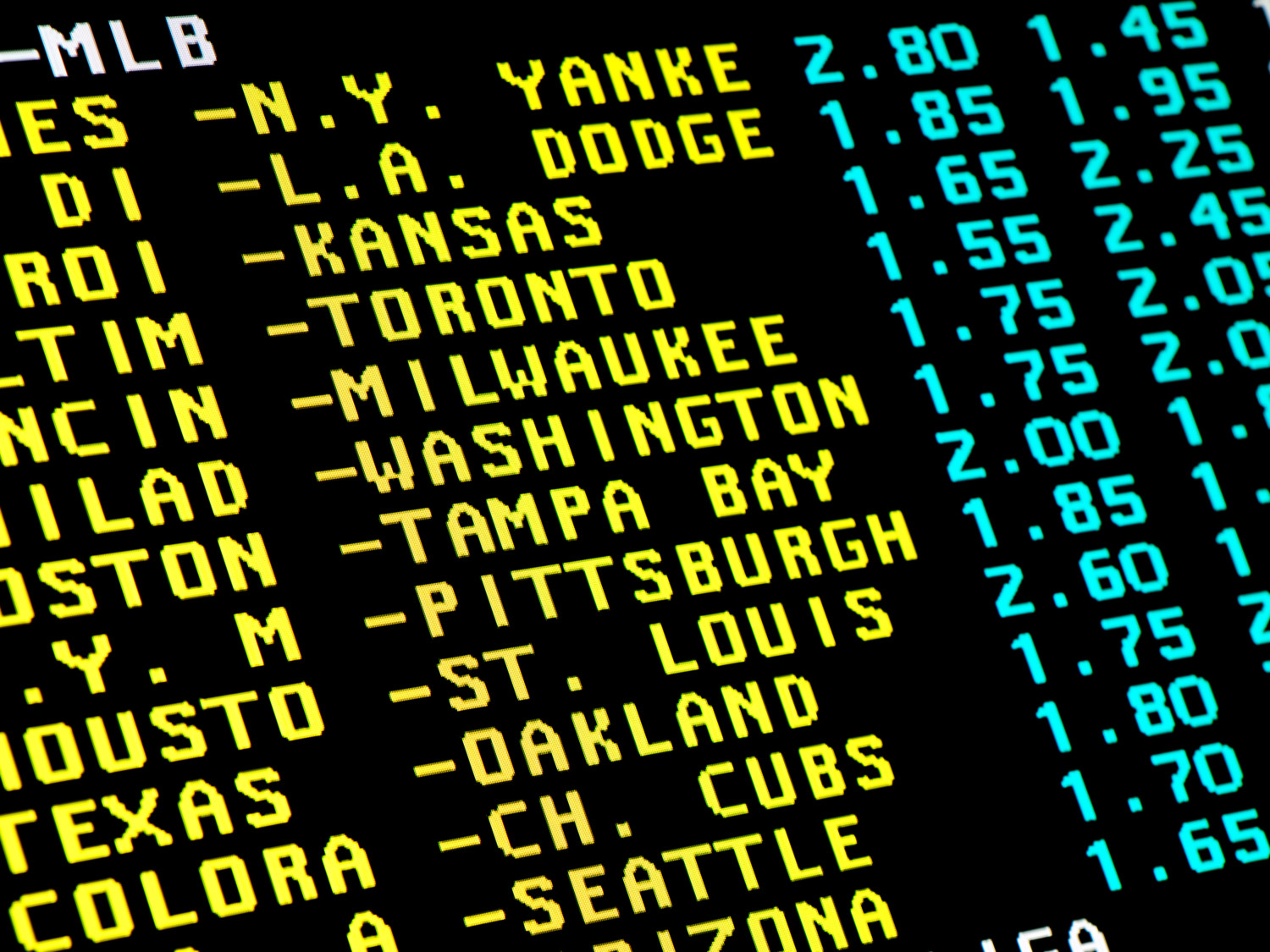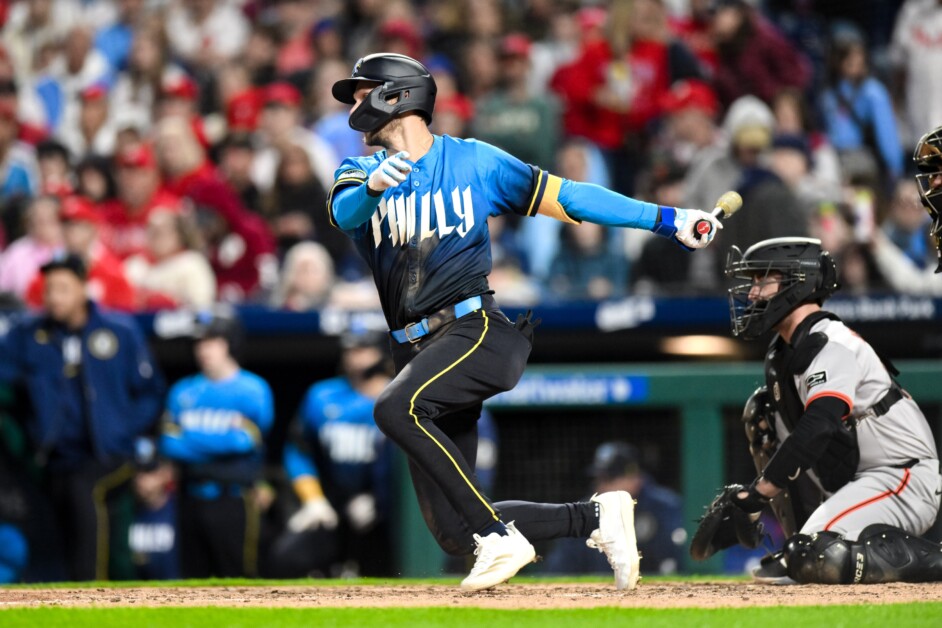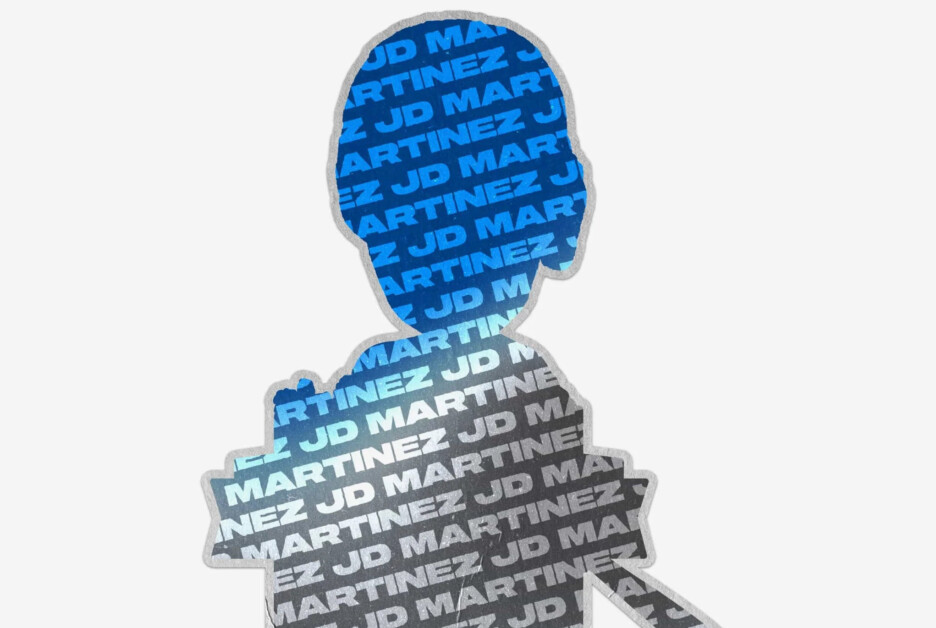Baseball has long held a special place in the American psyche, blending tradition, strategy, and raw athleticism into a sport that captivates millions. For fans, betting on games can elevate the experience, turning a casual Los Angeles Dodgers matchup into a personal investment in every pitch, hit, and run. Yet, with this excitement comes a need for responsibility.
Gambling on baseball—or any sport—requires a deliberate, mindful approach to ensure it remains a source of fun rather than a burden. This guide dives deep into how to bet responsibly, offering practical advice, statistical insights, and strategies to keep the thrill in check.
Whether you’re a seasoned bettor or a newcomer intrigued by the odds, understanding the principles of responsible gambling ensures that baseball betting enhances your love of the game without overshadowing it.
The rise of legal sports betting has transformed how fans engage with baseball. As of March 2025, 38 states and Washington, D.C., have legalized sports wagering, fueling a boom that saw Americans bet an estimated $120 billion on sports in 2024, according to the American Gaming Association (AGA).
Baseball, with its 2,430 regular-season games, accounts for a significant chunk—roughly 15%, or $18 billion.
This accessibility is a double-edged sword: it offers endless opportunities to get in on the action, but it also heightens the risk of overindulgence. Responsible gambling is about finding balance and enjoying the highs of a well-placed wager while safeguarding against the lows of unchecked habits.
Understanding the Risks of Betting
Betting on baseball isn’t just a game of picking winners; it’s a dance with uncertainty. The sport’s marathon season—162 games per team—creates a rhythm, with daily matchups from April to October. This pace offers constant betting opportunities, but it also amplifies risk.
The National Council on Problem Gambling (NCPG) reported in 2023 that 2.5 million U.S. adults met the criteria for a severe gambling disorder, with another 5 to 8 million considered at-risk. These figures, likely higher by 2025 given betting’s growth, underscore a sobering reality: what starts as fun can spiral if not managed carefully.
Baseball’s unpredictability fuels both its appeal and its challenges for bettors. In 2024, MLB teams won just 54% of games as betting favorites, per ESPN Stats & Information, despite average moneyline odds of -135 (a 57% implied win probability). This gap highlights how even “sure things” falter.
Picture a Dodger game where Freddie Freeman, who smashed 29 home runs in 2024, steps to the plate. His stats scream reliability, yet a single slump—Freeman hit .220 over a 15-game stretch in August—can upend expectations. Bettors face this volatility every day, and it’s why understanding risk is paramount.
The psychological pull of gambling adds another layer. A 2023 study from the University of Nevada, Las Vegas (UNLV) found that sports bettors often fall prey to the “illusion of control,” overestimating their ability to predict outcomes based on stats or intuition. In baseball, this might mean banking on a team’s hot streak or a pitcher’s ERA, only to be blindsided by an unscripted twist—say, a rain delay or a rookie’s breakout performance.
The AGA estimates that only 13% of sports bettors finish a year in profit, a stat that humbles even the sharpest minds. Responsible gambling starts with accepting this uncertainty, betting only what you’re prepared to lose, and savoring the game regardless of the outcome.
Setting a Budget and Sticking to It
Financial discipline is the cornerstone of responsible gambling. Set a budget based on disposable income before you wager on a game—whether it’s a nail-biter in that vibrant Dodgers blue or a low-stakes midweek tilt.
This isn’t savings or bill money; it’s cash you can spare for entertainment, like a night out or a streaming subscription. The AGA’s 2022 survey revealed that 68% of sports bettors establish a budget, but only 42% stick to it consistently. That disconnect is where trouble brews, turning a hobby into a headache.
To stay on track, treat your betting budget like a hard limit:
- Calculate your limit: Decide what you can afford weekly or monthly. If it’s $50, that’s your cap—no exceptions.
- Break it down: Spread it across games or series. A three-game set might get $15, leaving $35 for later.
- Resist the chase: Losing a bet stings, but doubling to recover rarely works. Bet365 data from 2024 showed that 60% of bettors who chased losses dug deeper holes.
- Leverage tools: Most platforms offer deposit limits or spending alerts. Set these up to enforce your plan.
Consider the scale of baseball betting: that $18 billion wagered in 2024 translates to about $7.4 million per game across the season. For the average fan, though, stakes are smaller—maybe $10 or $20 a pop.
The key is consistency. A 2023 AGA report found that bettors who adhered to budgets were 40% more likely to rate gambling as “enjoyable” versus “stressful.” Imagine betting on a Dodgers-Yankees clash, two titans trading blows. Win or lose, a capped wager keeps the focus on the drama—not your bank account.
Over a season, with 81 home games per team, those small, controlled bets add up to fun without regret.
Knowing the Odds and Stats
Baseball is a numbers game, and betting thrives on its stats. In 2024, MLB teams averaged 4.6 runs per game, up from 4.4 in 2023, thanks to rule tweaks like the pitch clock and larger bases.
This offensive bump shifts betting lines, with “over/under” totals creeping higher. Yet stats only guide, not guarantee. Favorites at -135 odds won 54% of games, leaving underdogs (+115 average) victorious 46% of the time—a near-coin flip despite the spread. Bettors who grasp this balance make smarter choices without banking on certainties.
Player stats add depth. Freeman’s 29 homers and .285 average in 2024 made him a prop-bet darling—will he go yard? Get a hit?—but baseball’s variance shines through. His longest homerless streak (10 games) shows even stars falter.
Team trends matter too: road teams won 47% of games in 2024, a slight edge over historical norms, per Baseball-Reference. These numbers inform bets but don’t dictate them.
Responsible gambling means using stats as a tool, not a crutch:
- Spot patterns: A team’s 10-2 record in day games might sway you, but one loss resets the slate.
- Weigh context: Injuries or weather (think wind at Wrigley Field) can trump raw data.
- Stay grounded: Freeman might rake, but a rookie reliever could silence him in a key spot.
The beauty of baseball’s stats lies in their depth—over 300,000 pitches thrown in 2024, each a data point. Yet outcomes hinge on intangibles: a bobbled grounder, a gust of wind, a manager’s hunch. Betting responsibly means embracing this chaos, wagering modestly, and letting the game’s story unfold.
Recognizing When to Step Back
Responsible gambling isn’t just about setting limits before you start—it’s about knowing when to hit pause once you’re in the thick of it. Baseball’s relentless schedule, with games nearly every day from spring to fall, can pull bettors into a rhythm that’s hard to break.
The adrenaline of a tight contest—imagine a Dodger game going into extra innings, the crowd buzzing as the score teeters at 3-3—can cloud judgment, nudging you to bet more than planned. That’s where self-awareness becomes your best defense. Recognizing the signs of overreach ensures that gambling stays a pastime, not a problem.
The stakes are real. In 2024, the National Problem Gambling Helpline logged over 250,000 calls, a 15% spike from 2023, per the National Council on Problem Gambling (NCPG). Sports betting drove much of this increase, with baseball’s daily grind often cited as a trigger.
The NCPG notes that problem gamblers lose an average of $100,000 over their lifetimes—money that could’ve funded countless seasons of tickets or gear. For baseball bettors, the warning signs are clear if you know where to look:
- Emotional toll: If a lost bet—say, an underdog upsetting your favorite—leaves you stewing for hours, it’s a red flag.
- Time creep: Spending more time scouring odds than enjoying the game shifts the balance. A 2024 AGA survey found 30% of bettors admitted to this trap.
- Financial strain: Dipping into savings or skipping a bill to fund a wager signals trouble. Even small bets add up over 162 games.
- Life imbalance: Missing a kid’s recital or a work deadline because you’re glued to a betting app? That’s a step too far.
Take Dodgers Spring Training 2025 as an example. Fans flock to Arizona to see new lineups and prospects, but bettors might fixate on early odds—will the revamped roster gel?
A hot start could spark a betting spree, but spring results rarely predict October. Stepping back preserves your enjoyment. The AGA reports that 75% of problem gamblers who take a break feel better within a month, a stat worth banking on. Baseball’s long season means there’s always another game—pause today, play tomorrow.
Utilizing Resources for Support
If betting on baseball starts feeling less like fun and more like a burden, you don’t have to navigate it alone. Support systems exist to help you regain control, from national hotlines to tools built into betting apps.
The NCPG’s 1-800-GAMBLER helpline operates 24/7, connecting callers to trained counselors for free, confidential advice. In 2023, 40% of its users flagged sports betting as their main issue—a figure likely higher by 2025, given the $18 billion wagered on baseball in 2024.
Gamblers Anonymous (GA) offers another lifeline. Attendance was up 20% last year as in-person and virtual meetings swelled to meet demand.
Betting platforms pitch in too. Giants like DraftKings and FanDuel, which processed over 60% of U.S. baseball bets in 2024, provide self-exclusion options—block your account for a day, a week, or a year. Some states enforce “cool-off” periods; New Jersey’s 2023 mandate cut problem gambling reports by 25% within a year, per state data.
These tools empower bettors to set boundaries, especially during high-stakes moments like the Dodger’s free agents’ 2024 signings. That offseason saw LA ink Blake Snell, a Cy Young winner with a 3.12 ERA in 2024, sparking a betting frenzy on his strikeout props. But hype doesn’t guarantee wins—Snell’s injury history reminds us to temper expectations.
Here’s how to tap into support:
- Call for help: Dial 1-800-GAMBLER if you’re unsure where to start. Counselors can guide you to local resources.
- Self-exclude: Use app settings to lock yourself out. A 2024 Bet365 study found 85% of users who did so returned later with healthier habits.
- Track spending: Apps like BetBudgets log every dollar, offering a reality check before you overcommit.
- Lean on others: Tell a friend or family member your limits—they can nudge you back if you stray.
Support isn’t a sign of weakness; it’s a strategy to keep baseball betting sustainable. Whether you’re riding the wave of a Snell gem or licking wounds after a loss, these resources ensure you’re never out of options.
Keeping Baseball Betting Fun
At its heart, gambling on baseball should amplify the sport’s joy, not eclipse it. With over 300,000 pitches thrown in the 2024 MLB season, each game delivers drama—walk-offs, no-hitters, grand slams—that needs no wager to thrill.
Betting can heighten that, turning a routine double into a personal victory, but the game itself shines. Picture a summer night, the air thick with anticipation as a pitcher faces a slugger, the crowd roaring with every swing. That’s baseball’s magic, and responsible gambling keeps it front and center.
The Shohei Ohtani contract—$700 million over 10 years, with $680 million deferred—epitomizes why fans love this sport: bold moves, bigger talent, and endless debate.
Ohtani’s 2024 haul (38 HRs, 4.8 WAR as a hitter) fueled betting markets, from home run props to MVP odds, yet his pitching absence post-surgery flipped the script. Responsible bettors enjoyed the ride without overextending—$10 here, $20 there, savoring his every at-bat. The AGA found that 80% of bettors who kept stakes low reported higher satisfaction than high rollers, proof that less can be more.
To keep it fun:
- Focus on the moment: Cheer a clutch hit, not just your ticket. Baseball’s 2,430 games offer endless highlights.
- Mix it up: Bet on quirky props—first pitch a strike?—to lighten the mood. In 2024, 45% of such bets paid off, per FanDuel.
- Share the vibe: Watch with friends, wager or not. The camaraderie beats solo stress every time.
Stats back this up: MLB’s 2024 attendance hit 71 million, up 3% from 2023, showing fans crave the experience—betting’s just a bonus. The season’s grind—81 home games per team, plus playoffs—means there’s always another chance to jump in. Maybe it’s Snell mowing down batters or an underdog stealing a series. Responsible gambling lets you ride those waves, keeping the thrill alive without burning out. Win or lose, it’s about the crack of the bat, the roar of the crowd, and the stories that unfold over nine innings—or more.
Educating Yourself on Betting Markets
Knowledge is power in responsible gambling, especially in baseball’s diverse betting landscape. Beyond picking winners, modern sportsbooks offer a dizzying array of options—over/under totals, player props, innings bets, and even live wagering as games unfold.
In 2024, the AGA estimated that 40% of baseball bets were on prop markets, up from 30% in 2022, reflecting a shift toward granular wagers. Educating yourself on these markets can surely sharpen your approach, but it is a tool for enjoyment, not a ticket to riches.
Take run totals: MLB’s 2024 average of 4.6 runs per game sets a baseline, but ballparks skew the math. Coors Field in Denver, with its thin air, saw 11.2 runs per game, while pitcher-friendly Oracle Park in San Francisco averaged 7.8, per Baseball-Reference.
Betting “over” in Colorado might feel smart, but weather—wind, humidity—can flip the script. Player props add another layer: a slugger’s odds to hit a home run might tempt you, yet 2024’s league-wide homer rate (1.1 per game) shows they’re far from guaranteed. Understanding these nuances keeps your bets grounded:
- Study the basics: Learn how moneyline odds (-120 means bet $120 to win $100) differ from spreads or totals.
- Factor in context: A pitcher’s 2.50 ERA looks golden, but if he’s facing a rested lineup, adjust expectations.
- Test small: Try a $5 prop bet—like a batter getting two hits—before scaling up. Data shows 70% of micro-bettors stay within budget, per Bet365.
The goal isn’t mastery; it’s mindfulness. The AGA found that bettors who researched markets were 25% less likely to report regret, even when losing. Baseball’s stats-rich world rewards curiosity—just don’t let it fuel obsession.
Building a Responsible Betting Routine
Consistency breeds control; a solid routine can anchor your baseball betting habits. With 2,430 games in the 2024 season—81 per team at home, 81 on the road—the sport’s cadence invites daily engagement.
That’s a blessing for fans but a potential trap for bettors. A routine rooted in discipline turns chaos into structure, letting you enjoy the action without losing your grip. Think of it like a pregame ritual: pitchers stretch, hitters take swings, and you set your limits.
Start with timing. The AGA’s 2023 survey showed 55% of sports bettors wagered impulsively, often mid-game, doubling their risk of overspending. Picking a set day—say, Saturday afternoons—or a specific series to bet on cuts that urge. Pair it with a cap: maybe $20 per week, split across two or three games. In 2024, baseball bets averaged $15 per ticket nationally, per DraftKings, making small-stake routines practical. Here’s how to build yours:
- Pick your spots: Focus on weekend games or rivalry matchups for higher stakes, skipping midweek fillers.
- Prep ahead: Check lineups and weather a day before—rainouts sank 2% of 2024 games, per MLB.com.
- Review weekly: Glance at your wins and losses on Sunday night. A 2024 FanDuel study found 60% of routine bettors adjusted better after losses.
The routine also means pacing. Baseball’s six-month slog offers 180-plus days of action—plenty of chances to bet without rushing. A Yankees-Red Sox clash might scream “must-wager,” but a quiet Tuesday tilt has charm too.
Sharing the Experience Responsibly
Group betting works best with ground rules. Maybe it’s a $10 pool on a series—who scores more runs, home or away?—or a friendly prop challenge: first strikeout wins bragging rights. In 2024, 25% of baseball bets were placed in social settings, per AGA, with participants 30% less likely to exceed limits. Friends can call you out if you overreact; the banter keeps it light. Try these:
- Set a group cap: Agree on $20 each for a weekend, pooling wins to split or donate.
- Mix non-betting fun: Grill some food or stream the game—only 50% of the night needs odds talk.
- Celebrate small: A $5 win buys the next round of sodas, not a reckless reload.
Picture a playoff push: extra innings, tension soaring, your crew cheering a clutch hit. A modest bet heightens that, but the real win is the shared roar. The AGA found that social bettors rated their experience 40% higher than soloists, win or lose. Baseball’s built for this—let it bond, not break, your circle.
Wrapping It All Together
Responsible gambling ties risk awareness, budgeting, stats, self-checks, support, and fun into a cohesive approach. Baseball betting isn’t about getting rich; it’s about enriching your fandom.
The $18 billion wagered in 2024 reflects its pull, but the 13% profitability rate keeps it humble. Set a budget, know the odds, and step back when needed—those habits turn a potential vice into a virtue. Resources like helplines and app tools back you up, ensuring no one’s left stranded.
Think of a packed stadium, the tension of a tie game, the buzz of a big play. That’s what you’re here for. Ohtani’s moonshots, Snell’s strikeouts, the Dodgers’ chase for glory—they’re the stars, not your betting slip.
With 162 games to play and a postseason to dream on, baseball offers endless chapters. Bet responsibly, and you’ll enjoy every page—win or lose, rain or shine, spring training to October.








